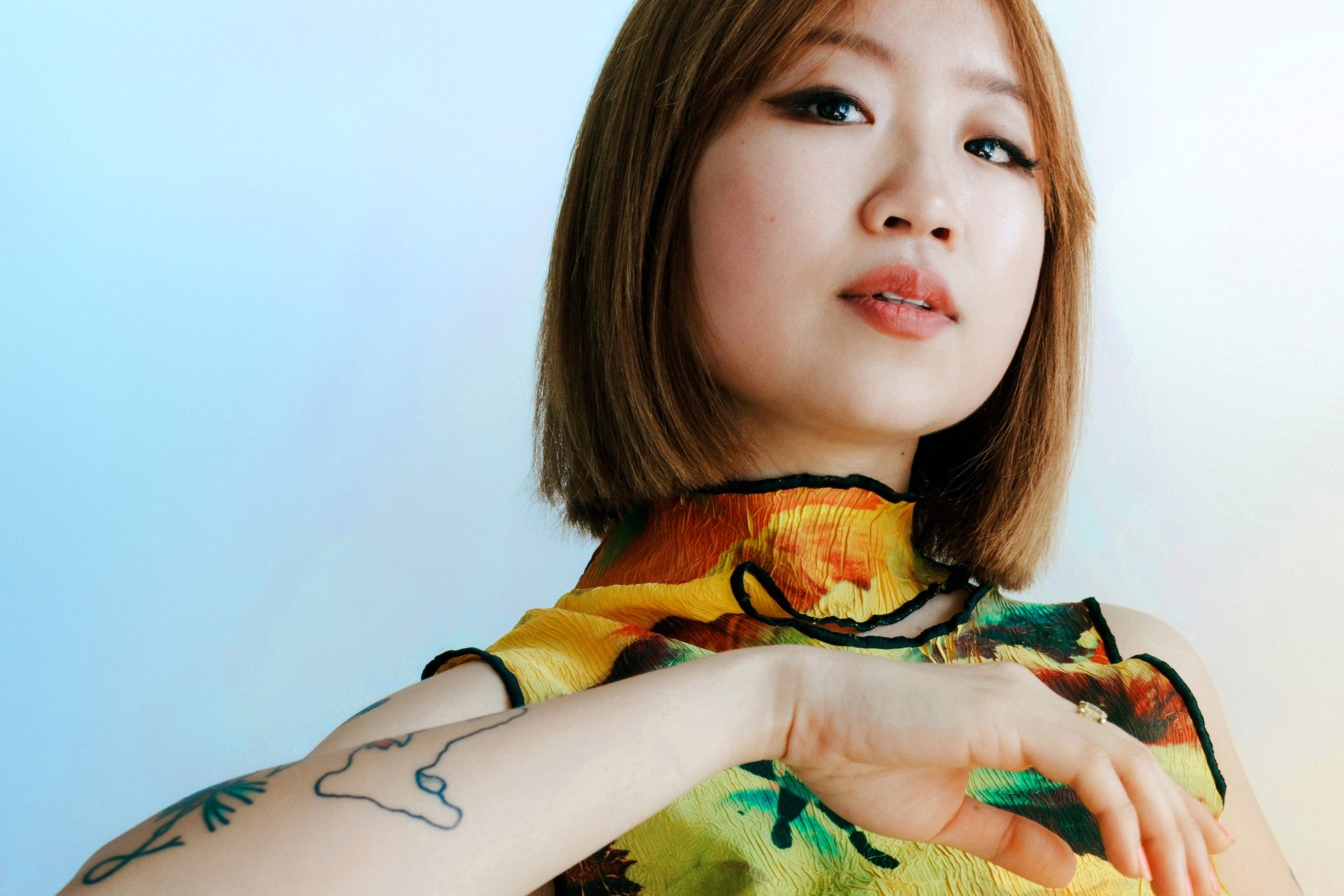 Features
Features
Outsider perspective: Why Yu Su's electronic music is fearless and free
Kaifeng-born, Vancouver-based artist Yu Su is taking dance music in unique directions. She speaks to Isaac Muk about her mind-blowing introduction to nightlife, spotlighting Chinese artists and being unshackled by traditional musical constraints
It’s a particularly stormy summer’s morning in Bethnal Green, East London, and Yu Su is sitting in the corner of a café, sipping on a large chai latté. “Have you listened to Andrew Huberman?” Yu asks. “I’ll give you a quick lowdown – he’s kind of in the Joe Rogan world of podcasting, but he studies sleep. Stuff like not looking at your phone before bed, no caffeine in the first 90 minutes since you’ve woken up – I’ve been listening to him to try and learn how to sleep properly.”
Is she jetlagged? I ask, given that her home is eight time zones behind where we meet. “When you’re touring, jetlag doesn’t really exist – you’re just tired all the time.”
It’s understandable why she would be feeling the exhaustion. While nominally living in Vancouver, Canada, the past month has seen a jammed schedule, with shows in London, Berlin, Stockholm, New York and Austin, as well as her debut at the mighty, Craig Richards-curated Houghton Festival this month. That’s just life now – over the past half decade or so, she has established herself as one of electronic music’s most versatile, yet singular talents – a producer of rich, leftfield downtempo, the lead of a four-piece live band that plays anything from groove-laden guitar rock to improvisational jazz, and a DJ capable of whipping large festival stages and low-ceilinged basements alike into a fist-pumping dance music nirvana.
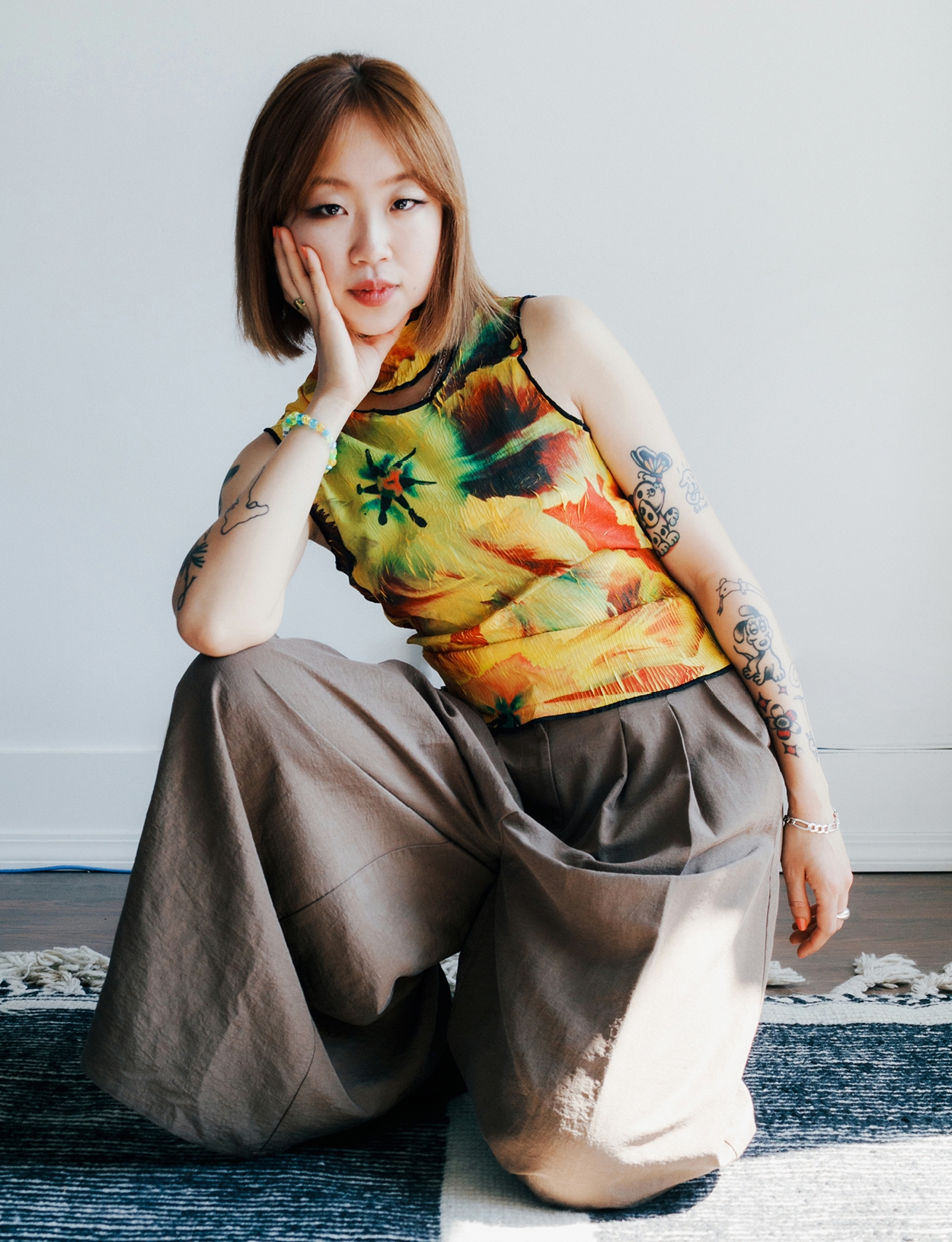
The three-hour long journey that she brought dancers with her on at Houghton was perhaps the perfect expression of her unique taste. Playing on Friday afternoon at the intimate Outburst stage, tucked away in a corner of the festival’s woodland area, she mixed oddball disco, weird electro-tinged rollers, and subtle chuggers – perfectly warming the floor for Lena Willikens and Vladimir Ivkovic. “It definitely felt very magical, it was like I could have kept going for another three hours,” she says straight after handing the decks over to Düsseldorf institution Salon des Amateurs’ long-standing residents. “I think me feeling it really channelled it to the crowd – I was like: ‘How weird can I go?’”
Read this next: The Cover Mix: Yu Su
While the set is a brooding-yet-danceable, diverse romp that flicks through an array of styles and traditional genre boxes, there remains something unifying about the music she plays. Although in recent times a number of DJs have made their names and careers out of their ability to blend disparate genres into coherent mixes, there’s a distinctive oddball nature, as well as a comforting warmth, to her tracks that make them feel unwaveringly Yu Su.
“I think what I’m good at is being able to find these textures in very different music [and bring them] together, does that make sense?” she asks, tensing her eyebrows. “I really come back to texture, grooves and polyrhythms.”

We’re chatting just a few days after the release of her latest EP, ‘I Want an Earth’, which she recorded while holed up on an orange farm in Ojai, California, while the area was experiencing unprecedented flooding. “It’s a pretty magical place, in a valley where you can see the moon, the mountains and pink and purple every day at sunset, but when I was there the valley was flooded, and all the roads got destroyed,” she recalls. “It looked like Vietnam with muddy waters and palm trees, which was crazy, so I was really feeling the power of the Earth. Like I’m just here to experience it and I’m just a guest on this Earth, which is why the title is ‘I Want an Earth’ – because I can only experience one Earth at one time.”
With Chinese writing sprawled up the left side of the record, and brightly coloured figures resembling traditional Eastern dragons, the artwork is a deliberate play on her Chinese identity, as well as the Western gaze towards the country of her birth and those from it. “It’s an intentional thing, I call it ‘self-orientalism’,” she explains. With the looping, twanging pentatonic scales of the titular track, that idea extends to the music as well. “It was inspired by Yellow Magic Orchestra, they were making music that sounded intentionally very oriental – it’s to play some funny, cheeky games with what people expect.”
That’s not to say that that’s all there is to the music though. There’s the gorgeous, floating ambient of ‘Counterclockwise’, the squiggly, plodding, difficult to define sounds of ‘Menta Y Menta’, and the nostalgic piano closer ‘Pardon’, which easily sounds like the kind of thing 19th century Hungarian composer Franz Liszt could have created if he had access to electronic synthesisers and a DAW.0
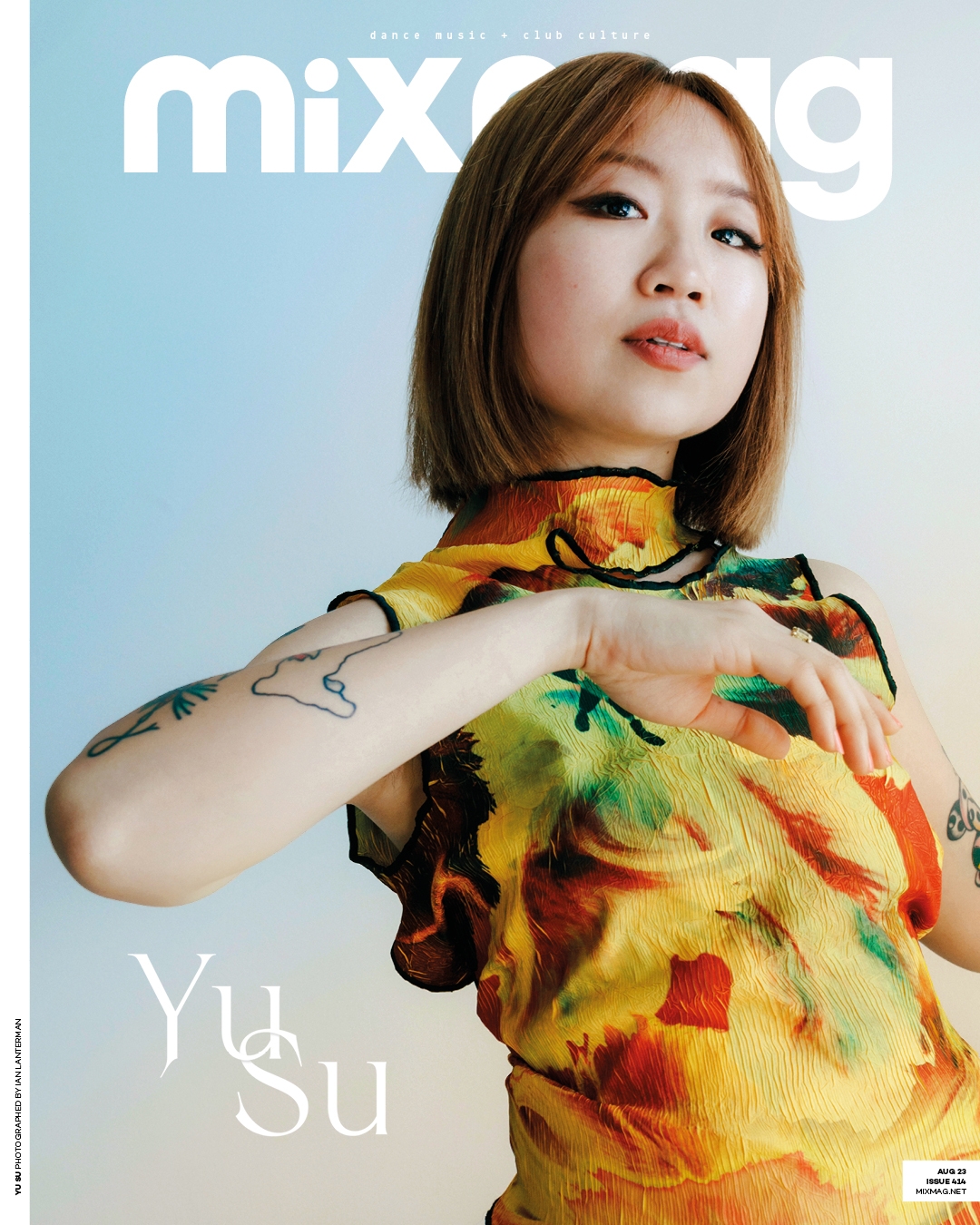
It’s clear that Yu doesn’t think about music in the same way as most, which makes sense given her unconventional journey into the industry. Growing up in Kaifeng, a city in central China’s Henan province, there was little exposure to any kinds of culture from the global West, let alone dance music. “There’s not much access to Western culture or anything,” she says. “It’s not like Shanghai, you know, where there are so many international schools – it’s just like a small, agricultural town.”
She did have a musical upbringing though. At the age of four, Yu’s mother surprised her young daughter one day with a piano. “It was really difficult to buy a piano back then,” she recalls. “When she bought it, she had to get it shipped from Shanghai. I was just a kid, one day I woke up and there was a piano in the house. So weird.”
Learning how to play the keys just as she was grasping the early stages of reading and writing, it would become a huge part of her childhood and teenage years, gaining a particular affinity for the impressionist sounds of Claude Debussy and the aforementioned Liszt, as well as a love of Chinese pop. As she grew older, and the world became more connected, Yu would explore the early days of the internet – before China blocked access to the likes of YouTube and Google – gradually exposing herself to English books and other snippets of Western culture.
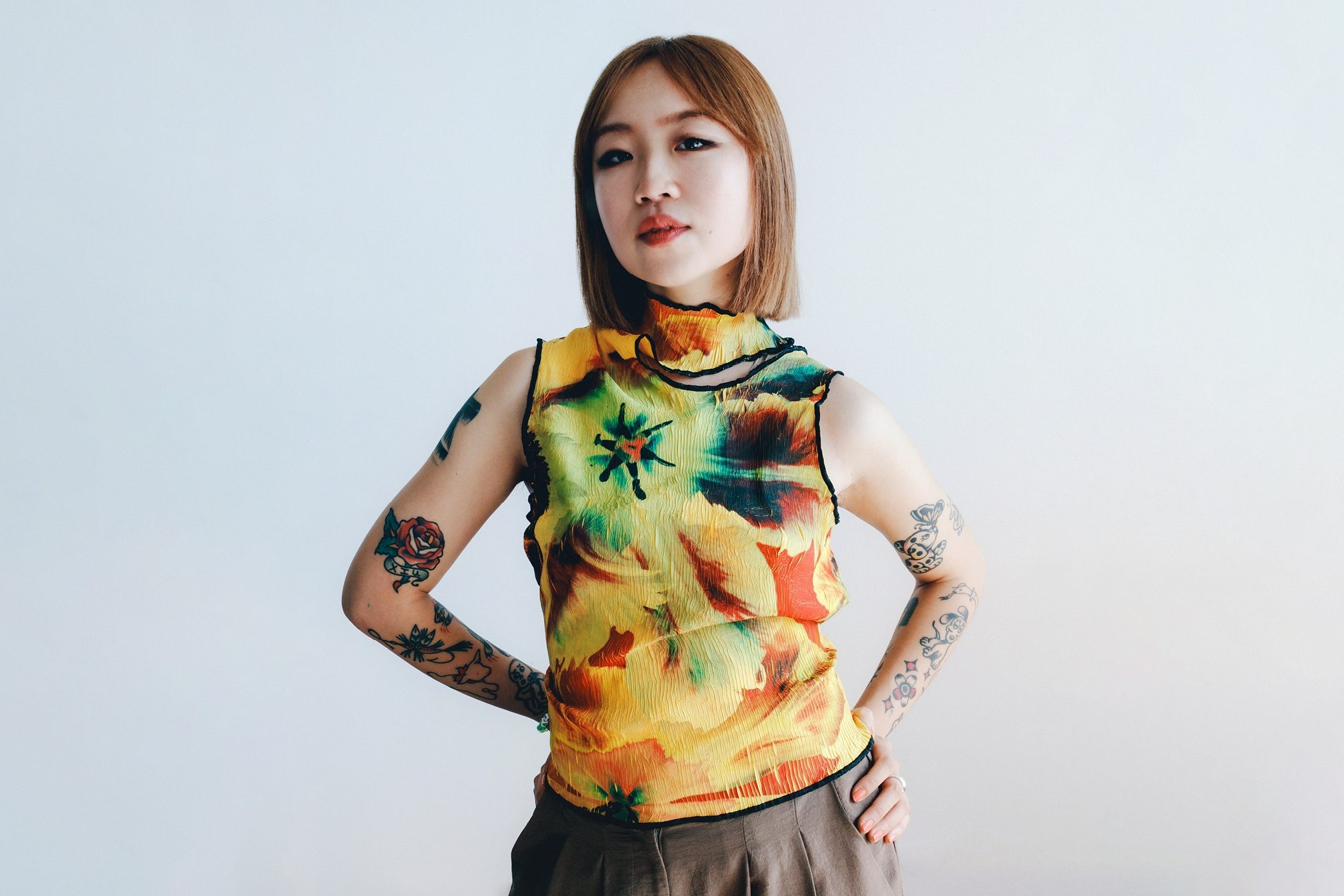
But it was when she moved to Vancouver for university that would really alter the course of her path. In early 2014, she was a few months into her course studying Anthropology and Eastern Religion, when one evening Yu was asked by some friends if she wanted to come along to a party with them, which she unwittingly agreed to. Entering a packed basement of around 200 people, she was faced with a complete sensory overload – a smoke machine hazing the vision, sweaty bodies rubbing up against each other, and a crowd dancing in unison to melodic house and rare disco records. She had found herself at a Mood Hut night – a label and party central to the nascent house music scene in Vancouver – with Floating Points headlining.
“At that point I’d never been to a dance music party. I just had no idea about anything – nothing,” Yu explains, with her voice raising as if to suggest she still can’t quite believe that situation. “So imagine me going sober, everyone is on a completely different frequency, I had no idea about drugs or rave culture and I had to stay to the end because I was too scared to leave by myself.
“It was just an unfamiliar, intimidating environment,” she continues. “Then by the end of the night – because I was just like ‘I don’t understand this music, I can’t tell you where it’s from’, I got so sucked into it. Maybe from the extreme tiredness and confusion but it was just so interesting.”
Read this next: Canada's first 36-hour NON STOP party is at the heart of Montreal's nightlife revolution
By the final hour she was hooked. After the lights came up at the end of the party, emerging from the club with the sun beginning to rise and her eyes bleary from exhaustion, Yu felt a wave of inspiration. Walking with her friend back to her accommodation, she turned and said: “I have no idea what this is, but if this guy can do it – I can do it.”
And she sure did. Embedding herself within Vancouver’s dance music scene, she became friends with Pender Street Steppers (Jack Jutson and Liam Butler) and the rest of the Mood Hut crew. They would introduce her to production after she asked the simple question: “How do I make music? Tell me how to make music,” and the first song she ever made, ‘Infi Love’ – a deep house groove that she wanted “to sound like Larry Heard” – was picked up by Andrew Morgan for his iconic, long-running label Peoples Potential Unlimited.
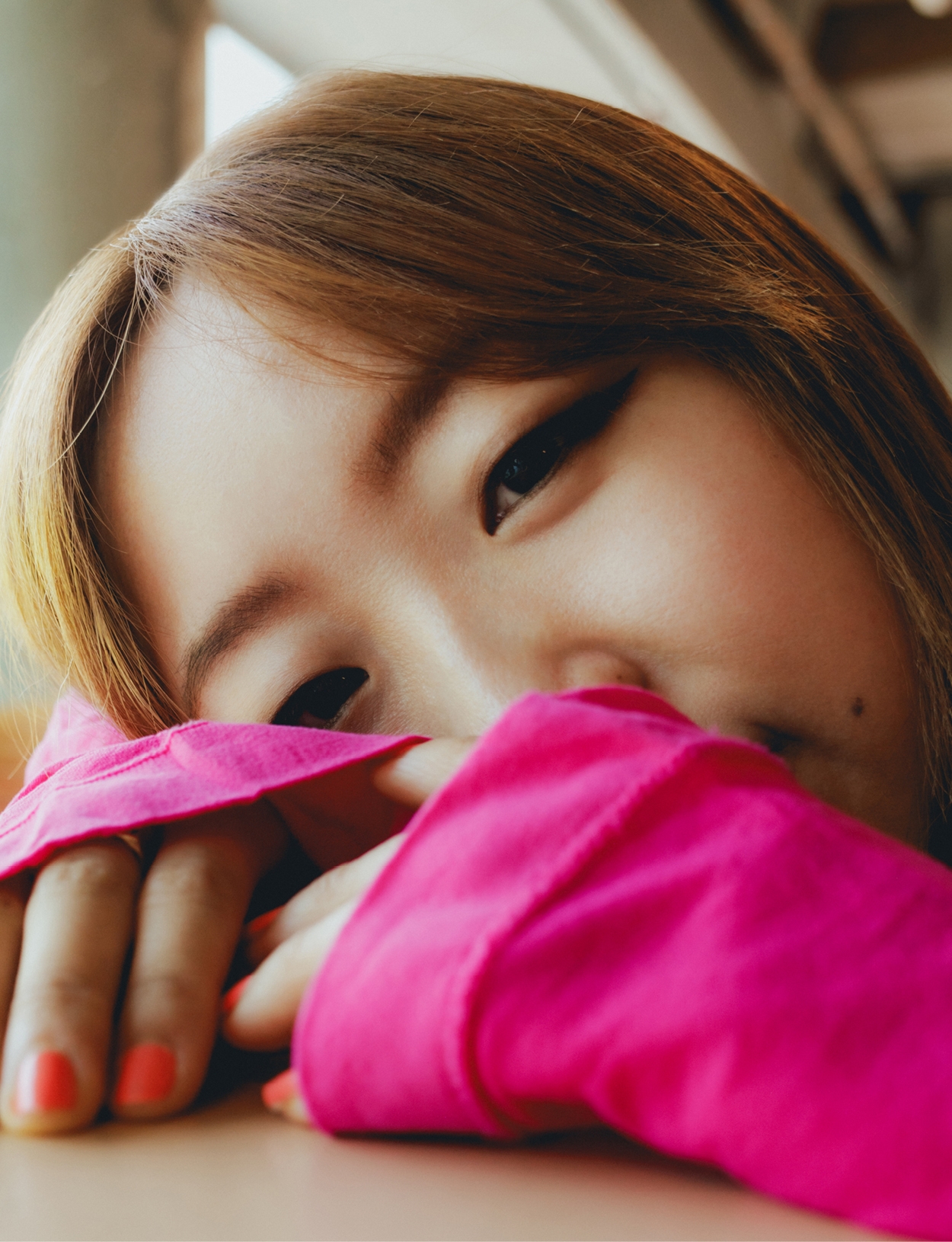
In many ways, the story of Yu Su’s rise in the music world reads like a series of fortunate events. Yet in reality, she assures me that it’s anything but. “I’m a Capricorn, and I’m Chinese,” she explains. “So that combo is like if you’re really into something, you’re like: ‘I’m going to do it.’”
Really though, it is her talent that has brought her to where she is today. Her DJ sets are expansive, varied and creative, and the exact same is true of her productions and live sets. Her style is marked by an authenticity about the music she plays, and her first big DJing break came exactly from her refusing to be anyone but herself. Having started learning to mix soon after producing, one day a Mood Hut friend came up to her with a proposal. A “really great” DJ from the UK called Ben UFO – who at the time Yu hadn’t heard of – was doing a North American tour with Four Tet and had reached out in the hope of playing a small, intimate show in Vancouver as an antidote to all the big stages that they were filling out. Did she want to warm up for him?
She had found herself at something of a crossroads with her DJing at the time, after a friend had told her that what she was playing was “too slow”, and that to be a successful DJ she couldn’t play music too slowly. “I was thinking maybe DJing isn’t for me because I like slower music, and I had no idea what techno was,” Yu reflects. “So I told him: ‘This person told me that I play too low so I probably shouldn’t be DJing, do you really want me to play?’ And my friend told me that it was a casual thing and to play whatever I wanted because the DJ is so good it doesn’t even matter.”
Taking to the decks of the pitch-black, intimate space at midnight, she blended slow jazz with ambient, and even deep field recording work. As the crowd gradually filled, it turned out to be the perfect floor warmer for the Hessle Audio head honcho. He was impressed – coming up to her as she finished her set to tell her how much he enjoyed it, before giving the crowd a raucous blend of techno, “crazy percussion” workouts, jungle and everything in between before wrapping up at 9:AM.

That experience watching Ben UFO would set her on her path to becoming the expansive dance music DJ she is today. “The impact that sound had on me...” she says, with her voice slowing down to emphasise its importance. “The music he was playing was so crazy. I was like I needed to be doing this, because it’s so inspiring.” Yu would record a mix for Hessle’s Rinse FM show not long after, while bonding with the Hessle trio over her second love – food. “Ben, Pearson Sound and Pangaea, they know as much about Chinese food as I do.”
Naturally, playing on one of the most respected and listened to dance music radio shows in the world naturally kicked her DJing career into gear. “I guess the English word fate isn’t the right word,” she muses. “But in Taoism [an ancient Chinese philosophy and religion] every minute, every second – the things you are seeing are meant to be. I really believe in that, so any decision you make, like going to that first party or playing that first party with Ben UFO, it’s like I’m carrying that narrative.
“A good example is when we DJ. If it’s a really good, all night long set, there’s a point where you’re not really doing it – that’s the best state. You’re just channelling it,” she continues. “I really believe in that [in daily life].”
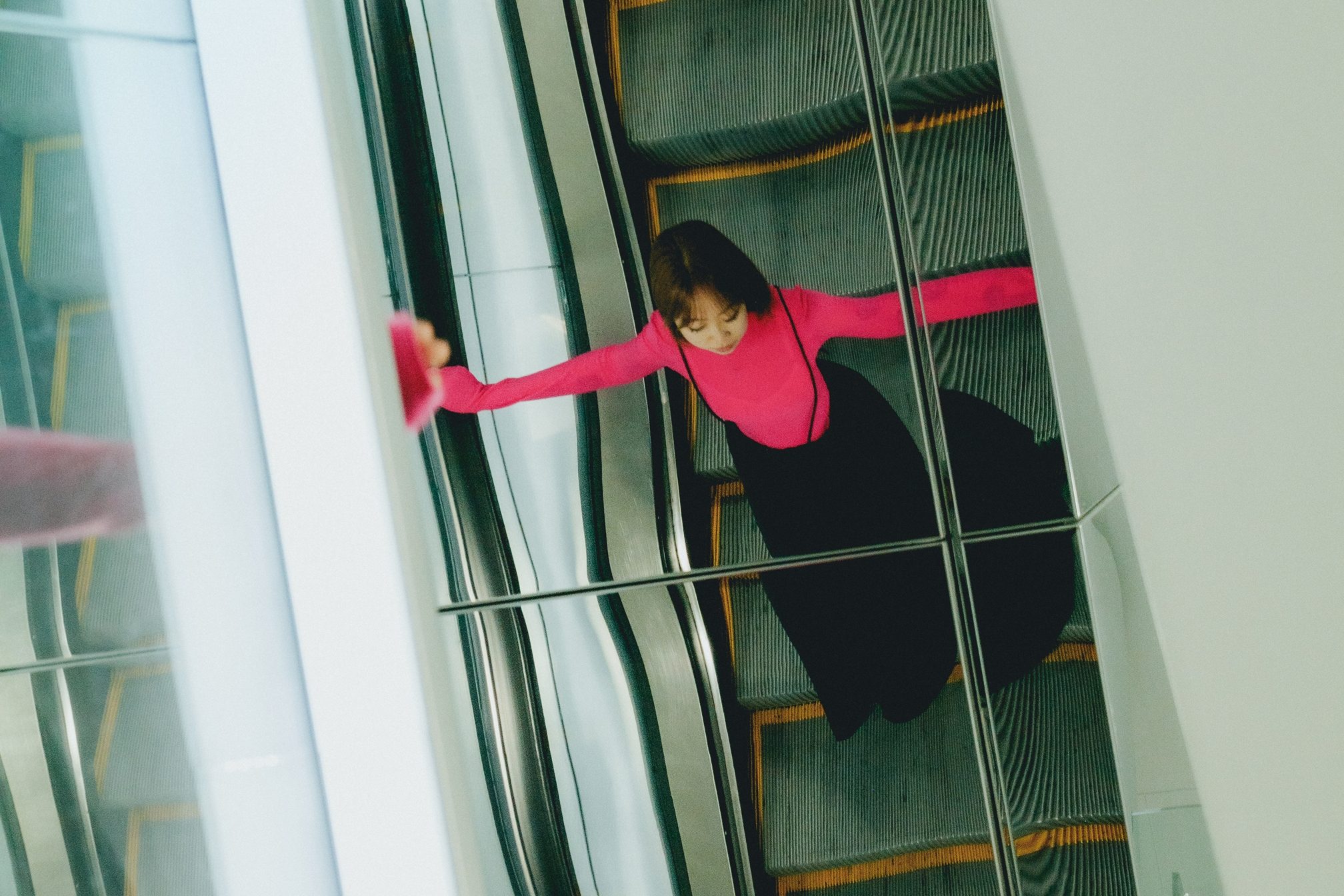
Since then, she has charmed crowds across the world, from Europe to South America, the USA to Southeast Asia – highlighted with something of a homecoming tour of China at the end of 2019, which took her to several of the country’s biggest cities including Beijing, Hangzhou, Shanghai, Chongqing and Chengdu. Having met and discovered so many talented artists on that tour, she decided to found record label bié with some friends based in Beijing. It was the outlet she used to release her 2021 LP ‘Yellow River Blue’ – a gorgeous romp through rich sound palettes and cosy textures, released to critical acclaim.
But bié also has acted as a platform for Yu to showcase and release music from some of her favourite underground artists from China, who by nature of living far from dance music’s epicentres often struggle to receive recognition for their work. “During that [2019] trip, I met some people there,” she says. “And I thought that I’m someone who is based in the West, but I’m so Chinese, like that is my home still. It’s hard for [Chinese artists’] music to be heard in the West. And there’s so many good artists.”
Read this next: How the pandemic connected China's club scene
Yu endeavoured to help change that. “As much as it is trying to be more diverse, the industry is built over here – it’s very UK, EU centric,” she continues. “So it’s hard. People actually have to make extra efforts if they want to know about [artists in China]. So I knew that me releasing a record on that label and me starting it helps – people are like: ‘Oh that’s Yu Su’s label, what is this new thing that bié has released?’”

She points to friend and one of her favourite artists Knopha, who collaborated with Yu on ‘Xiu (宫廷 version)’ – an alternative cut to a track that originally appeared on her album. “He’s so amazing, and he now has a record on Mood Hut coming up. He’s really good at sound design.” The original version on the other hand, was made along with Aiden Ayers and Joshua Frank, with the former a frequent collaborator of Yu’s and playing live as part of Her Band.
The idea to form the live ensemble came after renowned Seattle radio station KEXP reached out to her during the pandemic toperform as part of their series ‘Live on KEXP at Home’. “We kind of started it for fun and it really became a real thing,” Yu explains. “The band members are the people I have always been making music with and my closest friends, so it’s been an extremely inspiring process and experience.”
There’s new music on the way too, featuring lyrics and a “more psych rock electronic kind of sound”, which she wrote and developed with her bandmates. Yet currently they remain at the demo stage because of her hefty touring schedule, which she hopes can be properly recorded in the not-too-distant future.
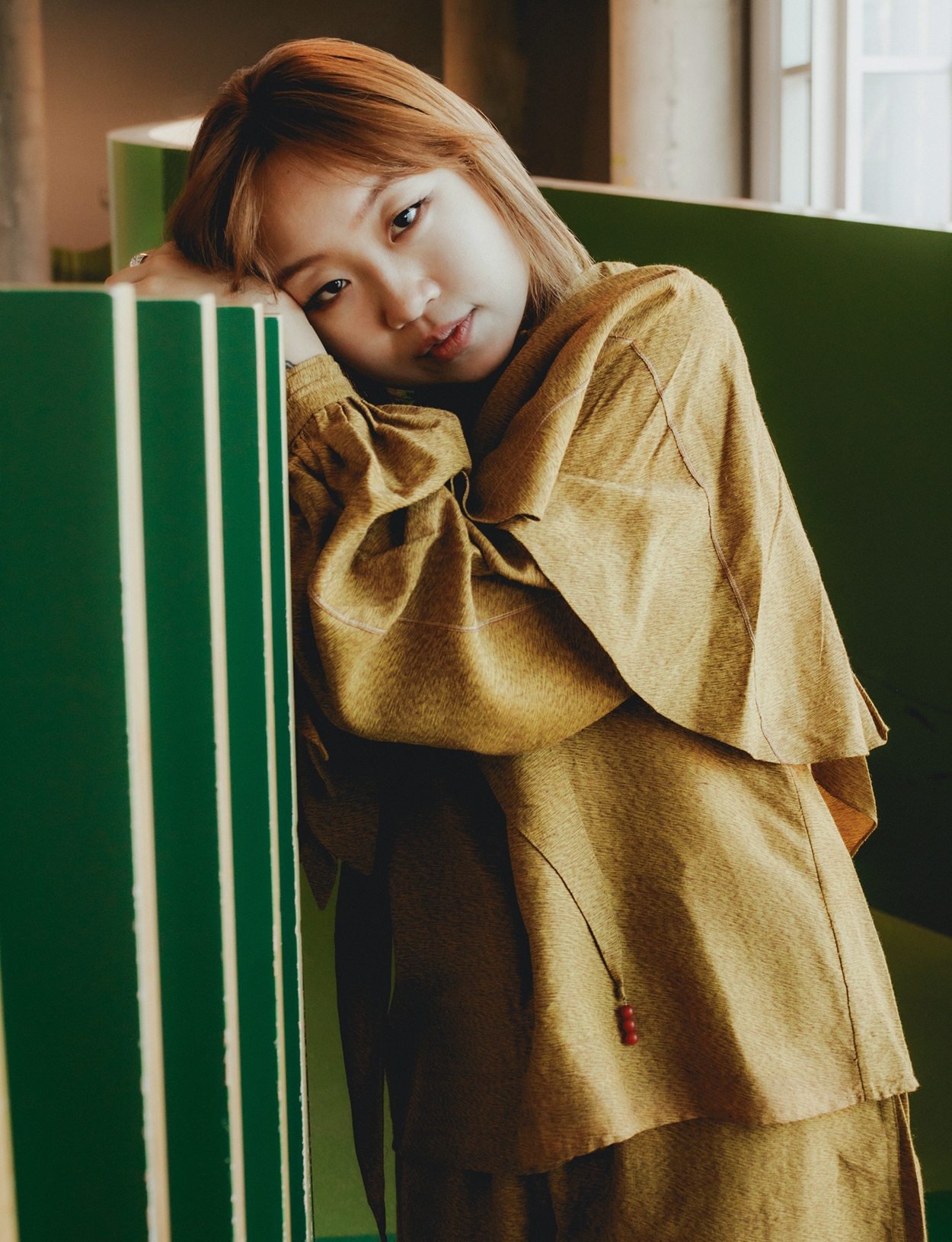
And the band's music is not the only non-dancefloor creative outlet she wants to revisit. On December 7, 2022, with the mercury hovering just above freezing, she presented Yu Su Cooks at Ubuntu Canteen (which has now sadly closed) in Vancouver. To a sold out dining room, Yu Su and the restaurant’s chef Dave Gunawan prepared a five-course dinner, with each dish representing a different region of China (Suzhou, Shunde, Henan, Yunnan and Silk Road), soundtracked by music created using field recordings from each area.
“Oh my god, it was one of the best things I’ve ever done in my life,” she says, beaming. “It was the first time I did a proper dinner at a restaurant, and it was a listening experience as well. Everything was intentional, we put a lot of effort into it. I developed the menu with the chef and cooked with the other staff, working for three days straight.”
The evening married her two favourite things – food and music. While away from the DJ booth or the studio, Yu can often be found sharing her culinary creations on her food Instagram page @yusucooks, where wild dishes like aspicy Sockeye carpaccio can be found alongside humble treats, such as blueberry porridge. “Food is an even more direct way of sharing love and care and connection than music, because everybody eats,” she adds. “For sure [there are similarities] between my music and cooking, because for both I do them freestyle – use what you have.”
And it is that unconventional individuality which makes Yu Su the artist that she is. Likeputting her own twist on a simple smoked salmon on rye by adding a spinach and carrot salad “bathed” in sesame oil and rice vinegar – she clearly doesn’t care for traditional recipes, whether it’s in the kitchen, studio, or DJ booth. And it’s a product of her position as an outsider – while absorbing influences from her home country of China, Vancouver, Europe, the UK and beyond – which has allowed her to flourish and leave her own distinctive seasonings on the music industry.
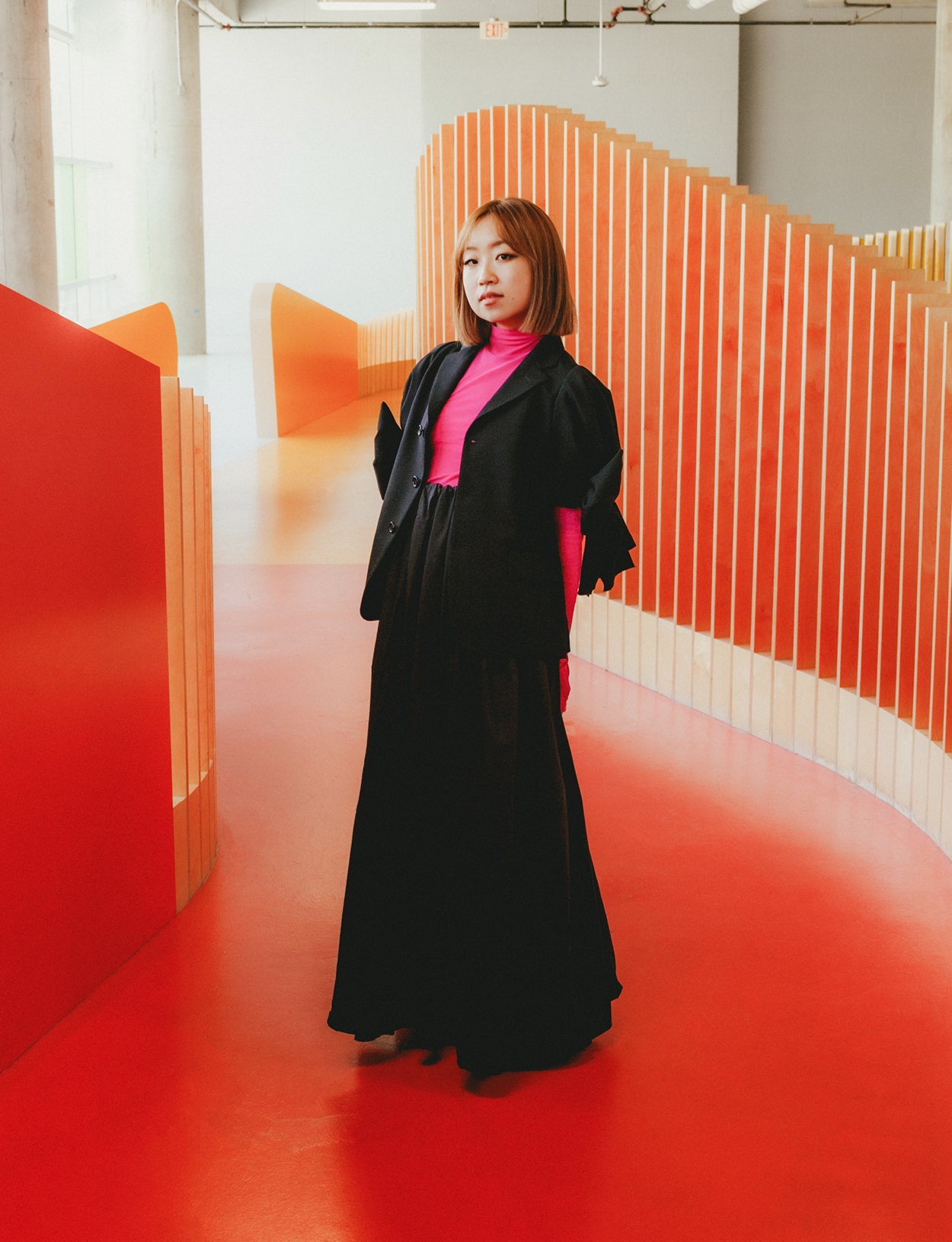
While she can play those slower, weirder sets like she did during that Houghton slot, she can also bang out techno, breaks, shuffling house, electro and much more when the time calls for it, without losing her signature touch. That versatility, she says, is a product of her unconventional entry to music, which has given her a freedom and attitude that is unconstrained by desires to fit into categories. Whereas many of her peers grew up as part of a ‘scene’ (for lack of a better word), Yu’s late-entry to the dance music world – from a completely blank slate – has given her a distinct musical mindset that is largely devoid of barriers and boxes.
“Fundamentally, because I don’t come from an electronic music background, I don’t actually know much about dance music – so I approach it more from a musician’s perspective,” she says. “For a while it was giving me a lot of imposter syndrome, because I didn’t know anything on any of these labels that everyone knows.
“So it was confusing for people to define me as a DJ because they can’t say ‘oh she plays techno’, because I just find things that I like in any genre,” she continues. “But now I enjoy having this outsider’s perspective, because I don’t know, and I don’t fear, so it helps me to be really free.”
'I Want an Earth' by Yu Su is out now, get it here
Isaac Muk is a freelance writer, follow him on Twitter


